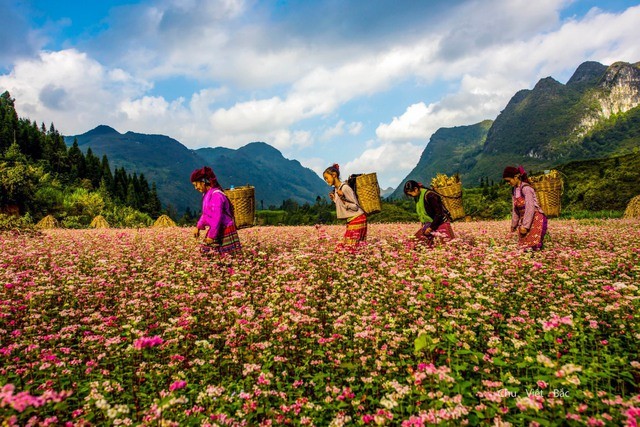(VOVWORLD) -A seminar on positioning and building Ha Giang province’s tourism brand was held on March 30 by the provincial People’s Committee, in collaboration with the Ministry of Culture, Sports and Tourism, and the Vietnam Tourism Association.
 (Photo: baochinhphu.vn) (Photo: baochinhphu.vn) |
As the northernmost province of Vietnam, Ha Giang has much potential and many advantages for tourism development. The locality aims to turn tourism into a key economic sector by 2025 and attract 3 million visitors per year. Under an orientation to 2030, it expects Dong Van Karst Plateau to be recognized as a national tourist area that welcomes 5 million tourists per year.
By exploiting its core values and unique tourism products in a green and sustainable direction while promoting digital transformation, Ha Giang is becoming an emerging Asian destination, thereby earning a spot on the world’s tourism map.
"Ha Giang has worked to preserve its cultural values and keep intact its natural heritages, especially the Dong Van Karst Plateau. We’ve maintained our traditional festivals to attract both domestic and international tourists to Ha Giang. This is how we plan to develop Ha Giang’s tourism," said Trieu Thi Tinh, Deputy Director of the provincial Department of Culture, Sports and Tourism.
Dr. Vu Nam of the Tourism and Hotel Faculty of National Economics University said Ha Giang needs to prepare resources and strengthen coordination with relevant agencies to create a unique and sustainable tourism space.
Ha Giang should devise new plans and policies consistent with the current development trends, Nam said.
"Ha Giang needs a strategy that clearly defines the its core values and unique offerings compared to other localities in Vietnam and the world, to guide the province’s brand positioning. Ha Giang’s tourism products need a unique selling point to encourage tourists to buy its tourism products, which will boost the competitiveness of Ha Giang tourism."
At the seminar, Ha Giang and Cao Bang provinces announced a new joint tourism product that features their two UNESCO Global Geoparks - the Dong Van Karst Plateau and the Non Nuoc Cao Bang. It aims to promote the provinces’ joint tourism offerings, contributing to the effective conservation and promotion of the heritages and improving locals’ livelihoods.